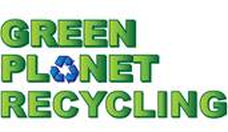In our quest for a sustainable future, efficient waste management practices play a crucial role. One area that often goes overlooked is yard waste recycling – its benefits, the recycling process, and its various applications.
Looking for a professional service? CONTACT US for a FREE QUOTE
What is Yard Waste Recycling?
Yard waste recycling involves the collection and processing of organic materials generated from residential and commercial landscapes. Instead of sending yard waste to landfills, it is transformed into valuable resources through composting, mulching, and biomass conversion.
Benefits of Yard Waste Recycling
Environmental Benefits
Yard waste recycling offers significant environmental advantages. It reduces the amount of waste sent to landfills, minimizing methane emissions, a potent greenhouse gas. Additionally, recycling yard waste helps conserve landfill space and prevents the release of harmful leachate into the environment.
Economic Benefits
Yard waste recycling can lead to economic benefits for communities. By diverting waste from landfills, municipalities can reduce waste management costs. The produced compost and mulch can be sold or used locally, creating opportunities for revenue generation and job creation.
Process of Yard Waste Recycling
Collection and Segregation
The first step in yard waste recycling is the collection and segregation of organic materials. This can be done through curbside pickup or designated drop-off locations. Proper segregation ensures the quality of the recycled materials.
Composting
Composting is a natural decomposition process that converts yard waste into nutrient-rich compost. The organic materials are piled, turned, and aerated to create the ideal conditions for microbial activity, resulting in the breakdown of organic matter.
Mulching
Mulching involves shredding yard waste into smaller pieces and spreading it over the soil surface. Mulch helps retain moisture, suppress weeds, and improve soil fertility. It acts as a protective layer, enhancing the overall health of plants and reducing the need for chemical fertilizers.
Biomass Conversion
In some cases, yard waste can be used as a feedstock for biomass conversion. Biomass conversion technologies, such as anaerobic digestion and pyrolysis, can convert organic matter into biofuels or biogas, providing renewable energy sources.
Applications of Recycled Yard Waste
Soil Amendment
Compost derived from yard waste recycling enriches soil with essential nutrients, improves its structure, and enhances water retention. It promotes healthy plant growth, reduces soil erosion, and minimizes the need for synthetic fertilizers.
Landscaping
Recycled yard waste, such as mulch, is widely used in landscaping projects. It adds aesthetic appeal, conserves soil moisture, regulates soil temperature, and inhibits weed growth. Additionally, mulch protects plant roots from extreme weather conditions.
Biofuel Production
Through biomass conversion, yard waste can be transformed into biofuels like biogas or bioethanol. These renewable energy sources can be used for heating, electricity generation, or as transportation fuels, reducing reliance on fossil fuels.
Implementing Yard Waste Recycling Programs
Residential Recycling Programs
Communities can encourage yard waste recycling through residential recycling programs. These initiatives may include providing curbside collection services, distributing composting bins, and organizing educational campaigns to promote participation.
Municipal and Community Programs
Municipalities and community organizations can establish centralized yard waste recycling facilities. These facilities enable efficient processing and ensure the produced materials meet quality standards. Public engagement and collaboration are key to the success of such programs.
Challenges and Solutions
Contamination Issues
Contamination of yard waste with non-organic materials poses challenges to the recycling process. Public awareness campaigns, proper education, and rigorous inspection at collection points can help mitigate contamination.
Infrastructure and Equipment
Developing appropriate infrastructure and investing in specialized equipment for yard waste recycling can be a hurdle for some communities. Collaborations with recycling companies, grants, and government support can help overcome these obstacles.
Public Awareness and Participation
Lack of awareness and participation can hinder the success of yard waste recycling programs. Effective communication, education, and incentives, such as discounts on compost or mulch for participants, can encourage public engagement and boost recycling rates.
Yard waste recycling presents an eco-friendly solution for sustainable waste management. By diverting organic materials from landfills and transforming them into valuable resources, we can reduce environmental impact, conserve resources, and create a more sustainable future.
Looking for a professional service? CONTACT US for a FREE QUOTE
FAQs
1. Can I recycle all types of yard waste?
Yes, most organic yard waste, such as leaves, grass clippings, branches, and plant trimmings, can be recycled. However, certain materials like invasive plants or diseased plants should be disposed of separately to prevent the spread of pests or diseases.
2. How long does it take for yard waste to decompose?
The decomposition time for yard waste varies depending on the materials and environmental conditions. Generally, it takes several months to a year for yard waste to fully decompose into compost.
3. Is yard waste recycling cost-effective?
Yes, yard waste recycling can be cost-effective in the long run. It reduces waste management costs, creates revenue opportunities through the sale of recycled materials, and minimizes the need for expensive synthetic fertilizers.
4. Can I use recycled yard waste in my vegetable garden?
Yes, compost derived from recycled yard waste can be an excellent soil amendment for vegetable gardens. It enriches the soil with nutrients and improves its structure, leading to healthy plant growth and higher crop yields.
5. Are there any alternatives to yard waste recycling?
While yard waste recycling is an effective method, alternatives include backyard composting for personal use or utilizing yard waste as a source of biomass for energy production through anaerobic digestion or pyrolysis.

